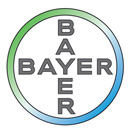Tias International Agreement
Publicado el 5/7/2023
Possible article:
Understanding the TIAS International Agreement and its Implications for Global Cooperation
The TIAS international agreement is a treaty framework that enables countries to enter into agreements with one another on a variety of issues, ranging from trade and investment to security and environmental protection. TIAS stands for the Treaty Information and Acquisition System, which is a database managed by the US Department of State that contains information about the texts, signatures, ratifications, and reservations of more than 2000 multilateral treaties and other international agreements.
The TIAS system was established in 1950 to facilitate the exchange and dissemination of treaty-related information among member states, and to promote the harmonization of treaty law and practice. By subscribing to the TIAS system, countries can access a centralized repository of verified and up-to-date treaty texts, as well as notifications of new treaties and amendments, which can help them monitor and comply with their international obligations. Moreover, the TIAS system provides a platform for countries to negotiate and register bilateral and multilateral agreements, which can enhance their mutual understanding and cooperation.
The TIAS international agreement is not a treaty itself, but rather a set of rules and procedures for the registration and publication of treaties in the TIAS system. According to the TIAS agreement, a treaty must be signed by the authorized representatives of the parties, and must contain clear and precise provisions that define the scope, purpose, and obligations of the parties. A treaty can also include reservations, which are unilateral statements that modify or exclude certain provisions of the treaty for the reserving state. However, reservations that are incompatible with the object and purpose of the treaty, or that defeat the essential purpose of the provisions, may be objected to by other parties.
The TIAS agreement also requires that treaties be published in official languages of the parties, if feasible, and that they be transmitted to the US government for registration in the TIAS system. Once a treaty is registered, it becomes part of the public record, and can be accessed and consulted by any interested person or entity. However, the legal effect and enforceability of a treaty depend on its domestic ratification or accession procedures, which vary among countries. In some cases, a treaty may require parliamentary approval, constitutional review, or referendum, before it can enter into force and bind the parties.
The TIAS international agreement has several implications for global cooperation and governance. First, it facilitates the dissemination and harmonization of treaty law and practice, which can increase the predictability and stability of international relations. By ensuring that countries have access to accurate and timely information about the obligations and rights of the parties, the TIAS system can reduce the risk of misinterpretation or non-compliance, and enhance the credibility and legitimacy of the international legal order. Second, it provides a platform for countries to negotiate and conclude agreements on various issues, which can foster mutual understanding and collaboration. By allowing countries to express their interests and aspirations, and to find common ground and solutions, the TIAS system can contribute to the resolution of global problems and challenges, such as climate change, terrorism, and economic inequality. Third, it enables non-state actors, such as NGOs, academics, and businesses, to access and utilize the treaty-related information and resources, which can empower them to advocate for their causes and interests, and to contribute to the development and implementation of international norms and standards.
In conclusion, the TIAS international agreement is an important framework for the registration and dissemination of multilateral and bilateral treaties, which facilitates global cooperation and governance. By enhancing the transparency, accessibility, and legitimacy of the international legal system, the TIAS system can promote peace, security, and prosperity for all. As copy editors and writers, we can help to promote the awareness and understanding of the TIAS system and its benefits, by producing accurate, clear, and engaging content that educates and informs our readers.
- Free Template for Prenuptial Agreement
- Material Handling Agreement Form
- Kentucky Marriage Separation Agreement
- China`s-Parliament-Ratifies-Paris-Climate-Change-Agreement-Ahead
- Contract Law Agreement Example
- Edit Rent Agreement
- Pie Agreement Definition
- Isda Agreement Template Pdf
- Distributor Agreement Auf Deutsch
- Pa Collaborative Agreement Texas


Hipertension Pulmonar Chile de Ramlight Studio está bajo licencia Creative Commons Atribución-No Comercial-Sin Derivadas 3.0 Unported.